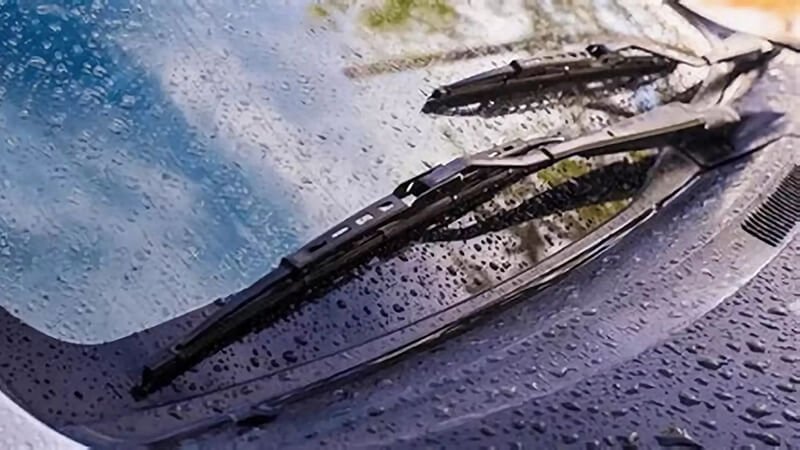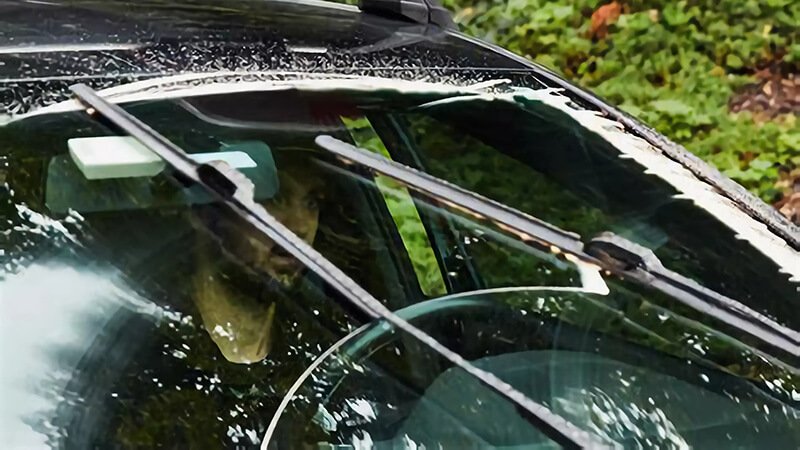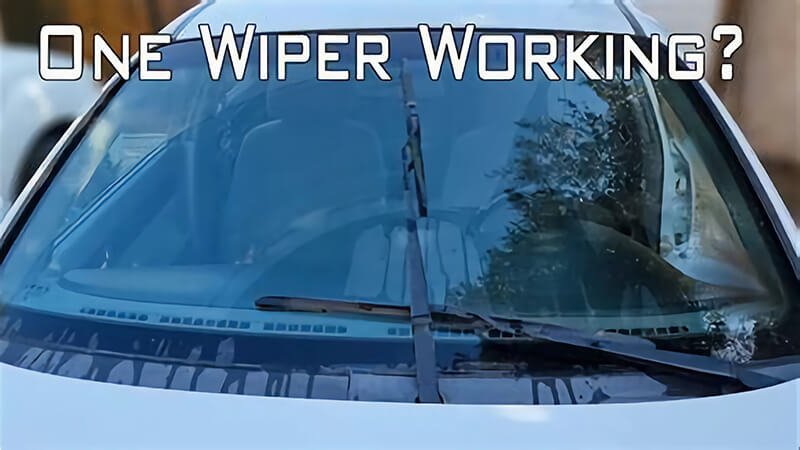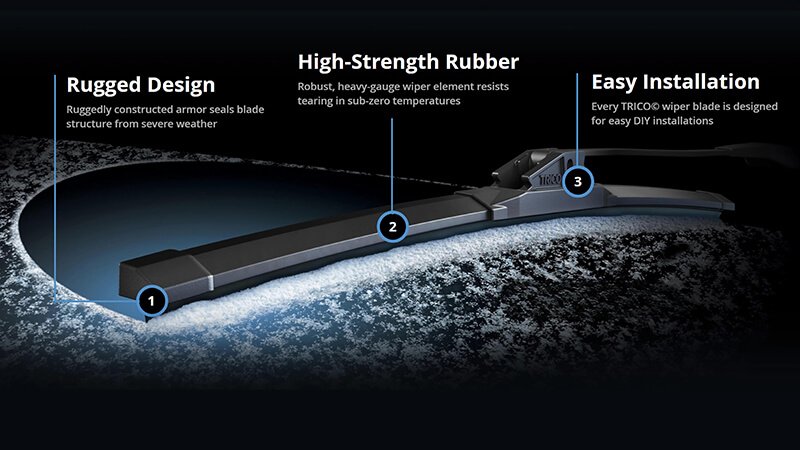Sometimes you're driving in pouring rain, and your wiper blades seem to have a mind of their own—stuck on one speed, no matter what you do. It’s frustrating, distracting, and can quickly become a serious safety risk.
When your windshield wiper speed isn’t responding, it usually signals an issue with the relay, control module, or intermittent circuit. Fixing these can restore full control and visibility.
This isn’t just a minor annoyance. For fleet managers and vehicle distributors, it can lead to driver complaints, safety issues, and maintenance headaches. Let’s take a closer look at what’s going wrong—and how we, at Runex Auto, have helped solve these exact problems with reliable wiper solutions.

Why are my windshield wipers slow speed not working?
You’re cruising down the motorway, and the rain starts falling lightly. You switch to the low-speed setting—but nothing happens. The wipers only respond on high. Why?
When the slow speed on your windshield wipers isn’t working, the likely culprits are a damaged relay, corroded wiring, or a failing wiper motor. At Runex Auto, our upgraded relay kits are built to handle continuous load, reducing failure rates dramatically.
Breaking it down: What really causes low-speed failures?
When our team at Runex Auto1 evaluated slow-speed wiper issues in commercial fleets, we found three recurring causes:
1. Burned Out Relays
A basic relay failure can knock out specific speed settings. We saw this first-hand in a UK-based fleet running vans across Manchester. Drivers were stuck on full-speed wiping during light drizzle—not ideal. Swapping to our upgraded relays fixed the issue instantly.
2. Corroded Connectors or Grounds
Low voltage delivery through worn wiring can make the wiper motor act as if it’s defective. In reality, the fault lies in the connector harness. We recommend distributors stock our corrosion-resistant harness kits to avoid this.
3. Worn Wiper Motors
Though less common, over time wiper2 motors lose torque—particularly on low-speed operations. We advise replacing them before they fail completely. Our OEM-grade motors are tested for over 500,000 cycles.
| Problem | Cause | Runex Solution |
|---|---|---|
| Slow speed not working | Faulty relay or corroded wiring | High-capacity relay and harness kit |
| Wipers only work on high speed | Dead low-speed circuit in motor | Long-life dual-speed motor |
| Intermittent wiping skipped | Faulty timing controller or relay | Modular controller upgrade |

Why is my windshield wiper going at different speeds?
Sometimes your wipers start slow, then go crazy fast. Or worse—jerky, inconsistent wiping. That’s not normal.
Inconsistent wiper speeds are typically caused by malfunctioning wiper relays, worn-out control modules, or internal motor feedback failures. These are exactly the weak points our Runex wiper systems are designed to reinforce.
What leads to inconsistent speeds?
Fleet operators we work with frequently report wiper speed irregularities, especially on older vehicles. Here’s what we’ve found in the field:
1. Voltage Instability
Old wiring and tired relays can’t regulate current properly. When voltage dips, wipers slow down—or glitch. Our Runex power3-stabilized relay systems help maintain a clean signal.
2. Control Module Issues
The speed of modern wipers is regulated electronically. If the timing logic fails, speed control gets erratic. We provide plug-and-play replacements for fleet managers needing a fast fix.
3. Physical Drag
Worn blades or bent wiper arms add resistance. That feedback can confuse older motors. All Runex blades are tension-balanced to maintain consistent wipe pressure across the windshield4.
| Symptom | Potential Cause | Runex Fix |
|---|---|---|
| Jerky motion | Unstable relay or voltage | High-tolerance relays |
| Sudden speed changes | Logic board error in controller | Certified replacement modules |
| Speed delay after switching | Weak feedback signal in system | Signal-calibrated motor units |

What controls the windshield wiper speed?
Wiper speed seems simple—low, high, and maybe intermittent. But behind the scenes, a lot is happening.
Windshield wiper speed is controlled by a combination of the driver switch, wiper relay, control module, and the motor’s internal settings. Runex Auto optimizes each link in this chain for consistent, weather-resistant performance.
What’s inside the wiper speed system?
Let’s walk through the four key parts:
1. Driver Input Switch
This is what your hand touches—but it's just the beginning. If the switch sends the wrong signal, the system won’t respond. All our Runex-approved switches are tested for accurate multi-speed toggling.
2. Wiper Relay
This is the “gatekeeper” that directs power where it needs to go. A faulty relay equals unpredictable performance. Our relays use copper contacts and thermal-resistant shells for long-term use.
3. Control Module
Think of this as the brain. It interprets signals and manages speed changes and intermittent timing. Many failures happen here, especially when exposed to moisture. Runex modules come sealed and pre-tested.
4. Wiper Motor
The muscle behind the motion. Some motors have built-in logic, others rely on external control. Our motors are dual-mode with internal override, so you’re covered no matter what system your vehicle uses.
| Component | Role in Speed Control | Runex Features |
|---|---|---|
| Driver Switch | Sends input | Multi-speed with snap-toggle design |
| Wiper Relay5 | Transfers power | High-capacity, copper-core relays |
| Control Module6 | Interprets speed logic | Moisture-proof, plug-in ready |
| Wiper Motor | Executes motion | Internal override, load-resistant housing |

Why is the intermittent wiper setting not working?
You set your wipers to intermittent mode expecting convenience—but they don’t pause like they should. Or they just don’t start at all.
When the intermittent wiper setting fails, it’s often a failed timer circuit or a degraded relay. Runex Auto builds timing modules specifically to handle variable UK rain conditions—light drizzle to heavy downpour.
Why do intermittent settings stop working?
One client we supported had a fleet of 30 vehicles all showing the same issue—intermittent wipers refused to function. We replaced every timing relay with our upgraded modules7. Result? 100% uptime in 60 days of testing.
1. Timer Relay Failure
Over time, timers lose accuracy or just fail to activate. Cheap relays degrade quickly. We build ours with automotive-grade resistors and weatherproof shells.
2. Switch Contact Wear
Sometimes, the stalk/switch can’t connect properly anymore. A simple click fails to send the right signal. Our switch sets include reinforced contact pads to reduce this.
3. Software Conflict
In newer vehicles, wipers can sync with rain sensors or vehicle ECUs. Software conflicts can block intermittent modes. Our modules are OEM-compatible to prevent these glitches.
| Issue | Reason | Runex Upgrade8 |
|---|---|---|
| No intermittent mode | Dead timer relay | High-resistor sealed relays |
| Delayed intermittent activation | Switch wear | Reinforced toggle-switch set |
| Skipped intermittent cycles | Software mismatch | ECU-compatible smart module |

Conclusion
Windshield wiper9 speed problems might seem minor—until you’re caught in a storm with no visibility. From faulty relays to glitchy control modules, the chain of control must be reliable. At Runex Auto, we’ve built our wiper solutions to handle the harshest weather and the heaviest use, especially for fleets and distributors across Europe. Whether it’s low-speed failure, inconsistent wiping, or intermittent mode not responding, we’ve engineered answers that restore safety and trust.
-
Discover how Runex Auto's innovative solutions can enhance vehicle performance and reliability in commercial fleets. ↩
-
Explore this link to understand common wiper system issues and solutions, ensuring your vehicle's wipers function optimally in all conditions. ↩
-
Discover how Runex power-stabilized relay systems ensure consistent wiper speeds by maintaining stable voltage, crucial for fleet operators. ↩
-
A clean windshield ensures optimal wiper performance and safety. Discover expert tips to keep your windshield spotless and improve visibility. ↩
-
Understanding the Wiper Relay's role can enhance your knowledge of vehicle electrical systems and improve maintenance. ↩
-
Exploring the workings of a Control Module can help you grasp its importance in vehicle performance and troubleshooting. ↩
-
Discover how upgraded modules enhance wiper performance, ensuring reliability and compatibility with modern vehicle systems. ↩
-
Discover how Runex Upgrade enhances vehicle wiper systems with durable relays, reinforced switches, and smart modules for reliable performance. ↩
-
Find the best quality OEM Auto Wiper Blades from Runex Auto. ↩













